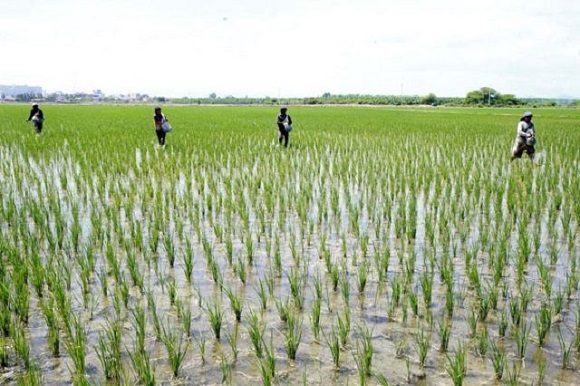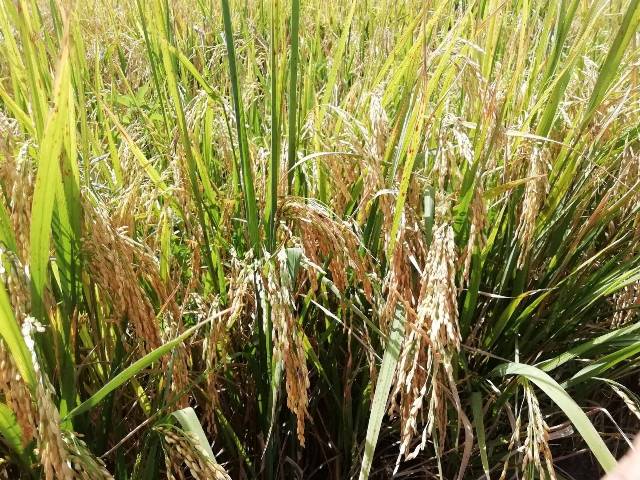 Guantánamo – With the planting of more than 96 hectares of popular rice in the current spring harvest, the cultivation of the cereal shows signs of recovery in the Guantánamo Province.
Guantánamo – With the planting of more than 96 hectares of popular rice in the current spring harvest, the cultivation of the cereal shows signs of recovery in the Guantánamo Province.
According to Maritza Frómeta Lobaina, a grain specialist in the Territorial Delegation of Agriculture, it is estimated that about 193 tons of rice will be harvested for self-consumption of the Provincial Poultry Enterprise, the Seed Base Business Unit and the sale to the population.
Frómeta Lobaina specified that as part of the strategy to boost the productive indicators of the in-demand food, the program also foreseen to plant 307 hectares of land in the upcoming cold season, which begins next September 1st, and obtain 614 tons of rice for consumption. distributed in the 10 municipalities.
The higher tillage volume is committed to the Guantánamo Municipality, followed by Baracoa, Manuel Tames and El Salvador.
The grain specialist pointed out that despite the low availability of inputs and the technology necessary for grain processing, in 2025 the purpose is to incorporate 100 more hectares of land to this program in the Guantánamo Municipality.
Of that figure, 40% of land will be cleared on areas owned by the Enrique Campos Credit and Services Cooperative, and 60%, in Paraguay, which are infested by marabou, and the recovery of a siphon to transfer the water needed by the crops is pending.
Likewise, Frómeta Lobaina indicated that the study of the areas belonging to AZCUBA, located in the Paraguay Paraguay, is being processed on the availability of water and the agronomic state of the soil, which would allow the incorporation of 100 more hectares, and planting in the two seasons 507 hectares to achieve an estimated production of 1,014 tons of rice for consumption.
Although Guantánamo is not included among the territories which supplies large volumes of popular rice in the country, the boost for planting rice is aimed at gradually satisfy the demand for the regulated family basket and social consumption, based on the difficulties for its acquisition in the international market and the marked decrease in national production.
Translated by Liubis Balart